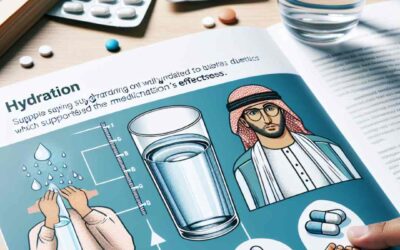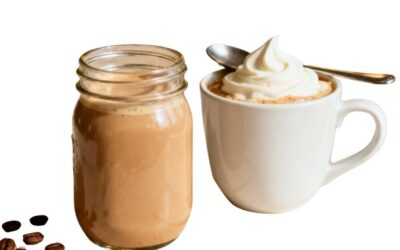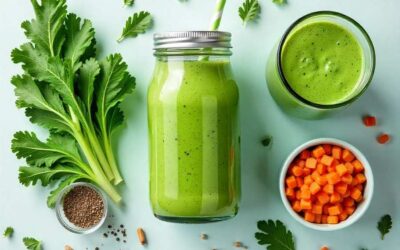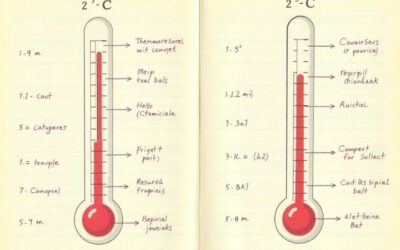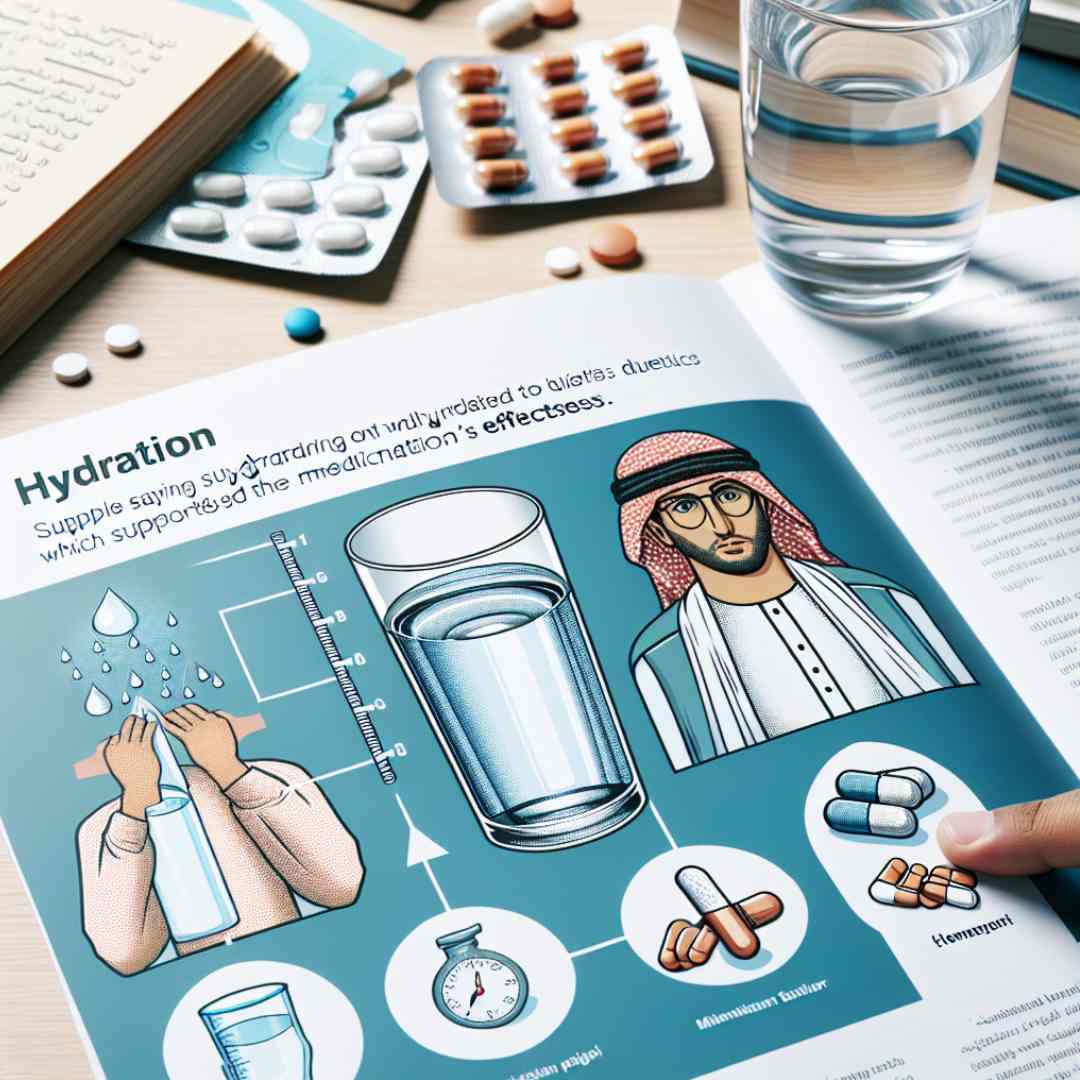If you’re on a mission to improve your health, you’ve probably heard about the importance of staying hydrated. But what happens when you’re taking diuretics, commonly known as water pills? These medications are frequently prescribed to help reduce fluid retention or manage conditions like high blood pressure. In such cases, the question arises—how much water should you drink?
Hydration is vital for everyone, but it becomes even more crucial if you take water pills. Ensuring you drink the right amount of water can prevent dehydration and support the medication’s effectiveness. In this post, we’ll explore the relationship between water intake and diuretics, offering practical advice to balance your fluid levels safely.
Understanding Water Pills and Their Role
Water pills, or diuretics, help your body eliminate excess sodium and water. They can relieve swelling and reduce blood pressure. Different types of diuretics work slightly differently. Regardless of the kind, the main goal is to increase urine output, helping flush out excess fluids.
While this process has clear health benefits, it also means your hydration needs might change. Knowing how much to replenish is vital to avoid dehydration when losing more water than usual. Hence, understanding how diuretics work is the first step in managing your water intake effectively.
To put it simply, a delicate balance needs to be maintained. Drinking too little can lead to dehydration, while drinking too much may counteract the diuretic’s purpose. The key is finding that balance to keep your body functioning optimally.
The Importance of Hydration
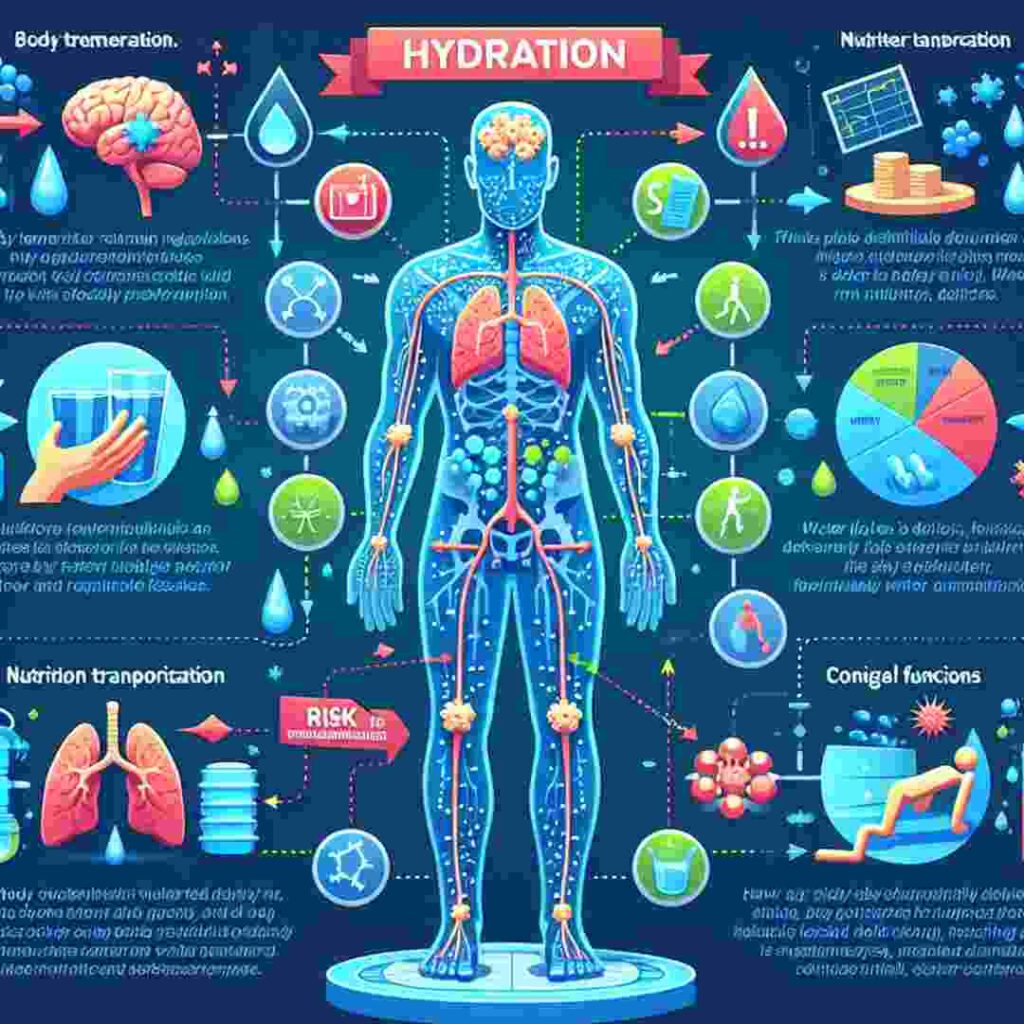
Hydration is essential for overall health. Water helps regulate body temperature, lubricate joints and transport nutrients. It also plays a critical role in maintaining cognitive functions and energy levels. When taking diuretics, the necessity to stay well-hydrated becomes even more pronounced.
Dehydration can lead to many problems, including dizziness, confusion, and kidney issues. For those on diuretics, these risks can be heightened, making it crucial to monitor your fluid intake. Proper hydration ensures your body can efficiently flush toxins without compromising vital functions.
Incorporating adequate water into your daily routine can also support your fitness goals. Whether you’re a health-conscious individual or a fitness enthusiast, optimal hydration can enhance physical performance and recovery.
Factors Affecting Water Needs
Several factors can influence your hydration requirements when taking diuretics. These include your age, weight, activity level, and the specific condition being treated. For instance, someone engaging in intense physical activity might require more water than someone with a sedentary lifestyle.
Environmental factors also play a role. Hot or humid climates can increase perspiration, leading to higher fluid loss. Additionally, dietary habits, such as high-sodium foods, can impact how much water your body needs to balance electrolytes.
Understanding these variables can help tailor your hydration plan to meet your needs. Considering these factors, you can ensure you drink enough water to support your health and your medication’s effectiveness.
Signs of Dehydration to Watch For
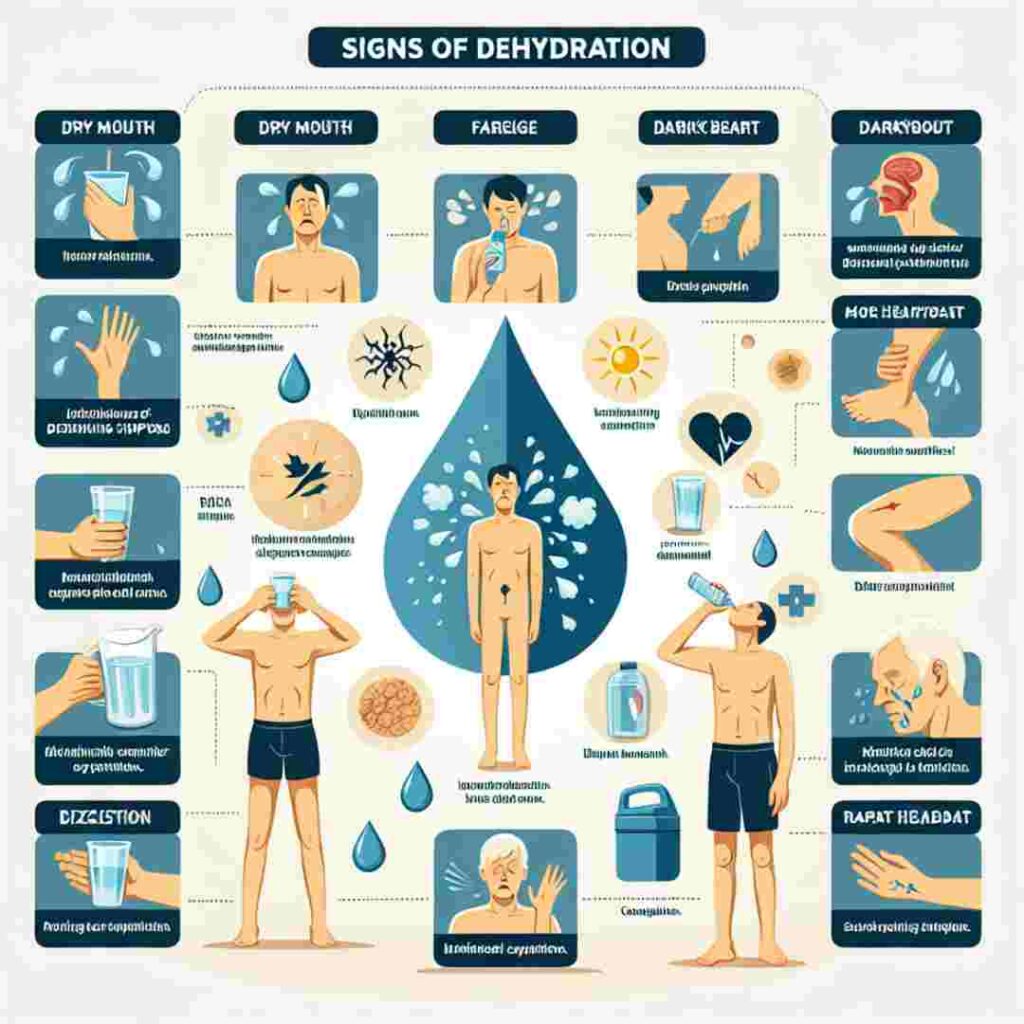
Recognizing the symptoms of dehydration is crucial when managing your fluid intake. Common signs include dry mouth, fatigue, and dark urine. When taking diuretics, it’s essential to remain vigilant for these indicators, as they may signal the need to increase your water consumption.
More severe symptoms, such as dizziness, rapid heartbeat, and confusion, require immediate attention. If you experience these, it’s essential to seek medical advice promptly. Catching these signs early can prevent more severe complications and help maintain your overall well-being.
Staying attuned to your body’s signals allows you to adjust your water intake accordingly. This proactive approach ensures that you’re meeting your hydration needs without overcompensating.
How Much Water Do You Need?
Determining the right amount of water to drink while taking water pills isn’t an exact science, as everyone’s needs differ. However, a general guideline is to follow the “8×8” rule—drinking eight 8-ounce glasses of water daily. Of course, this is a starting point, and adjustments may be necessary based on individual factors.
Consulting with a healthcare provider is always advisable when determining your hydration needs. They can offer personalized recommendations based on your health conditions and medication regimen. This expert guidance ensures that you’re effectively supporting your body’s needs.
Listening to your body’s natural thirst signals can also effectively gauge your water intake. Staying mindful of these cues can help maintain the balance when taking diuretics.
Tips for Staying Hydrated
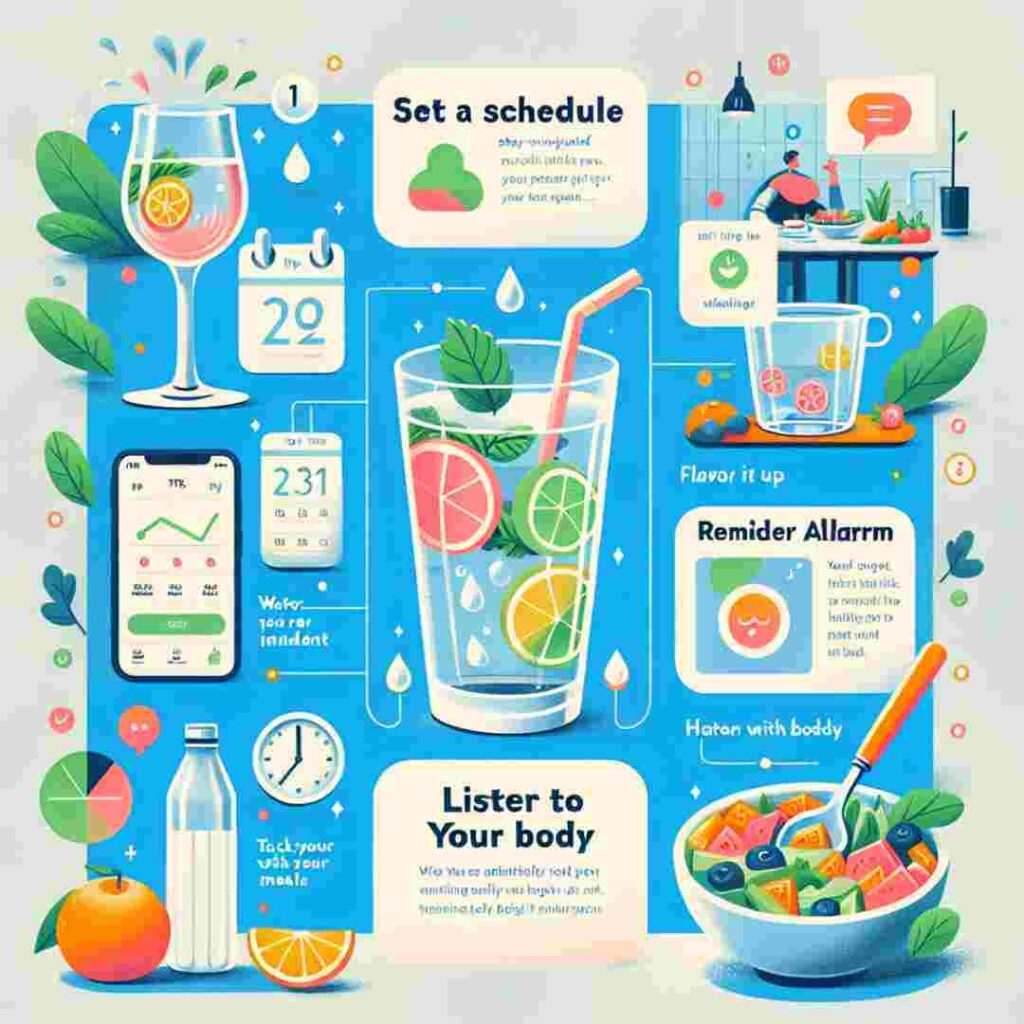
Staying adequately hydrated requires a conscious effort, especially when taking diuretics. Here are some practical tips to help you maintain optimal hydration:
- Set a Schedule: Establish a routine for drinking water throughout the day. Setting reminders ensures you’re consistently meeting your hydration goals.
- Flavor It Up: If plain water is unappealing, consider adding slices of fruit or herbs like mint to enhance the flavor and make drinking more enjoyable.
- Track Your Intake: Use apps or journals to monitor daily water consumption. This can provide valuable insights and help you adjust as needed.
- Hydrate with Meals: Incorporate water-rich foods such as fruits and vegetables into your meals. These can contribute to your overall fluid intake and provide additional nutrients.
- Listen to Your Body: Pay attention to signs of thirst and drink accordingly. Staying attuned to your body’s needs is critical to maintaining balance.
By incorporating these strategies, you can ensure that you’re staying adequately hydrated while reaping the benefits of your medication.
Foods That Support Hydration
Certain foods, in addition to drinking water, can help you hydrate. Fruits and vegetables like watermelon, cucumber, and oranges are excellent choices. These foods not only provide fluid but also essential vitamins and minerals.
Other options include smoothies and soups, which can be both hydrating and nutritious. These can be particularly convenient for those who struggle to drink enough water throughout the day.
Including these foods in your diet can enhance your hydration strategy, making it easier to meet your daily needs. This approach provides a well-rounded method to support your health and medication effectiveness.
Potential Risks of Overhydration
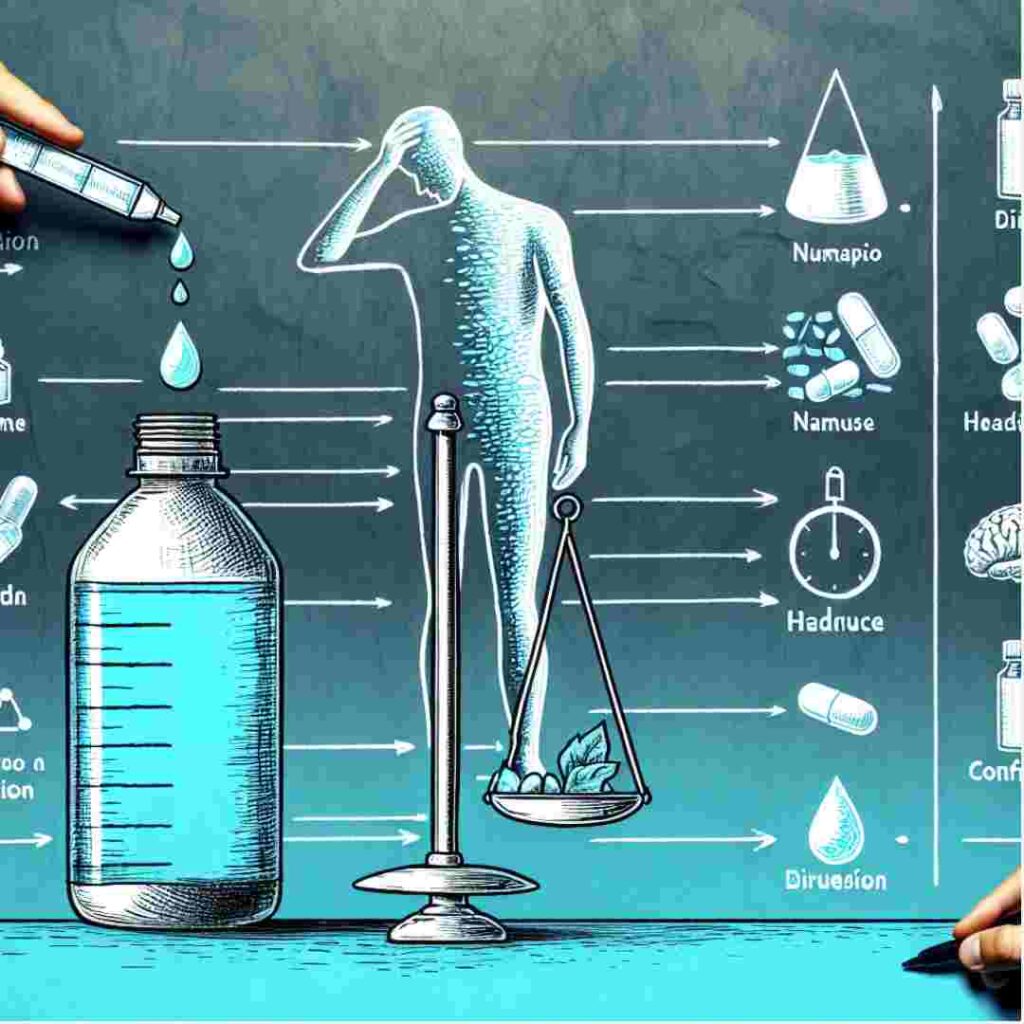
While it may seem counterintuitive, overhydration can also pose risks. Drinking excessive amounts of water can dilute essential electrolytes in your body, leading to a condition known as hyponatremia. Symptoms include nausea, headaches, and confusion.
For individuals on diuretics, striking the right balance is crucial. Overhydration can interfere with medication effectiveness and potentially cause complications. Monitoring your water intake and being mindful of portion sizes can help mitigate these risks.
By understanding the signs and staying informed about your body’s needs, you can maintain a healthy equilibrium and avoid the pitfalls of overhydration.
Consult with Healthcare Professionals
When in doubt, consult with healthcare professionals. They can assess your needs and provide tailored advice to ensure you manage hydration effectively while taking diuretics.
Regular check-ups and open communication with your doctor can help address concerns or questions. This collaborative approach empowers you to take control of your health while benefiting from expert guidance.
Seeking professional advice enhances your understanding of hydration needs and supports your overall well-being on your health journey.
Frequently Asked Questions
- Can I drink other liquids besides water while on diuretics?
Other liquids, such as herbal teas, broths, and natural fruit juices, can contribute to your daily fluid intake. However, it’s advisable to limit caffeine and sugary beverages, as they can counteract the effects of your medication.
- How does my activity level affect my hydration needs?
Your activity level plays a significant role in determining your hydration needs. Increased physical activity can lead to more significant fluid loss through sweat, requiring you to adjust your water intake accordingly to compensate.
- Are there any specific times when I should avoid drinking too much water?
It’s generally best to avoid consuming large amounts of water before bedtime to prevent sleep disruptions from frequent bathroom trips. Also, consult your healthcare provider if you have specific timing concerns about your medication.
- How do medications influence my hydration needs?
Medications like diuretics increase urine production, which can lead to fluid loss. This change necessitates a careful balance of water intake, which should be managed with your healthcare professional’s advice to suit your unique circumstances.
- Can dehydration affect my medication’s effectiveness?
Yes, dehydration can impact the effectiveness of many medications by affecting absorption and distribution in the body. Ensuring adequate fluid intake is essential to help maintain the intended benefits of your treatment.
This section addresses common questions and concerns to clarify how to manage hydration while taking diuretics, helping you make informed health choices.
Conclusion
Balancing water intake with diuretic use is essential for maintaining optimal health. By understanding your body’s needs, recognizing signs of dehydration, and consulting with healthcare professionals, you can ensure that you’re meeting your hydration requirements safely and effectively.
With practical tips, mindful monitoring, and a commitment to your health, you can enjoy the benefits of your medication without compromising hydration. Remember, staying informed and proactive is critical to achieving wellness.
To explore hydration strategies and health-related topics further, consider contacting healthcare experts or accessing resources that support informed decisions. Your well-being is a priority; staying hydrated is integral to your health-conscious lifestyle.










